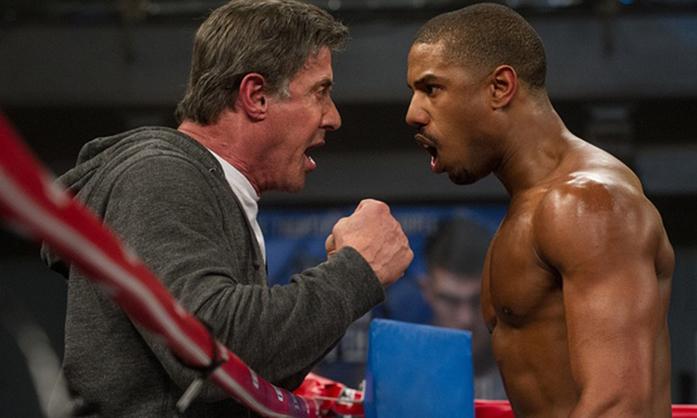The latest installation in the Rocky franchise, Creed, was snubbed by the academy but earned the awards it won’t get.
The lead-up to this year’s Oscars ceremony on Feb. 28 has been colored by the whiteness of the nominees. Though there are many films that are horribly under-represented (Tangerine, Straight Outta Compton, and Beasts of No Nation among them) perhaps no film’s representation better epitomizes the backwards state of the industry than Ryan Coogler’s Creed, the latest — and best — film in the Rocky franchise since the original.
The film, which Coogler wrote and directed, only received a Best Supporting Actor nomination for Sylvester Stallone, who returns as Rocky Balboa to coach Adonis Creed (Michael B. Jordan), the son of his longtime rival Apollo. While Stallone does deliver a good turn, his contribution is dramatically overshadowed by the genius of Coogler’s direction, the depth of Jordan’s masterful performance, and the intensity of Maryse Alberti’s cinematography.
The story follows the tried and true boxing movie narrative: upstart kid with fire but no formal training decides to try his hand at the pros, wins a few fights, gets a shot at the bigtime, and proceeds to train his ass off.
The interpretation of that narrative, however, is unlike that in any sports movie I have seen. Alberti’s camerawork in the fight scenes is somehow both frenetic and fluid. The film’s most memorable scene, Creed’s first major fight, is shot in one unbelievable take; the camera weaves seamlessly through the action, effortlessly slipping between opponents, popping up just as a jab connects with one of the fighter’s jaws. The punches hit harder, the crowd is louder, and the injuries feel more real than ever.
Although it draws its basic premise from the Rocky lineage, Creed feels very much like its own movie. The low points in the film (of which there are very few) come when it tries too hard to contort itself into being just another cog in the Rocky franchise. The many high points more than make up for this, though. Creed’s struggle with his father (he is the product of an affair Apollo had just before he died) and his search to establish his own identity as a “Creed” is portrayed beautifully by Jordan.
Too often, hyper-macho movies like this fall victim to the same old tropes, but Coogler’s script and Jordan’s acting allow the film to transcend the genre and adopt its own sense of autonomy.
There are few actors and directors who have the degree of chemistry Coogler and Ryan have. (The two previously collaborated on the brutal Fruitvale Station in 2013, which, too, was one of that year’s most underappreciated movies.) Even the love story in the film, which has famously been one of the weakest aspects of sports movies in the past, is honest and touching. As a whole, Jordan as Creed is better and more fun to watch than Stallone as Rocky ever was.
It is unfortunate the Oscars has once again failed to recognize achievements by African-American actors and directors (and female cinematographers), even when they come knocking on the Academy’s doorstep wrapped in the paper of a classic Hollywood franchise with a big, fat $170 million box-office bow placed on top.
Here’s to hoping the sequel — just announced and set to open in November 2017 (I am already counting the days) — will receive more accurate and fair representation at awards shows.
Tune into “Bijou Banter” on KRUI (89.7FM) at 4 p.m. today to listen to a discussion of the movie.
The film will open at 8:30 p.m. today at FilmScene, 118 E. College.



